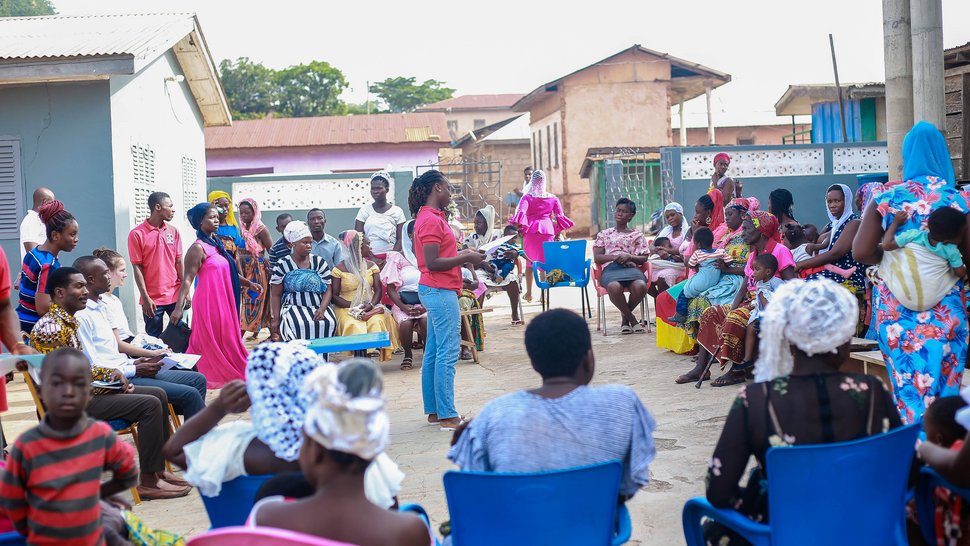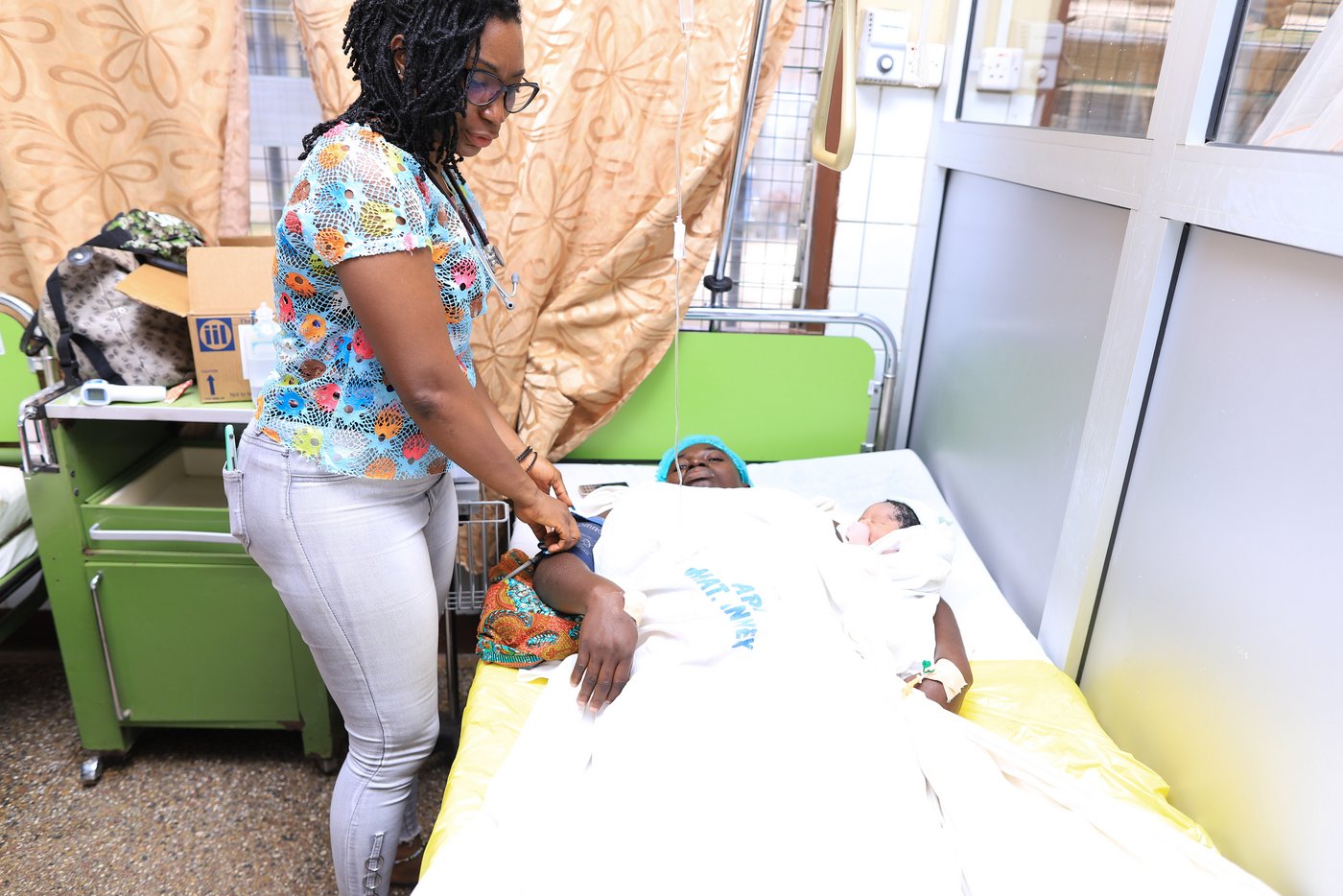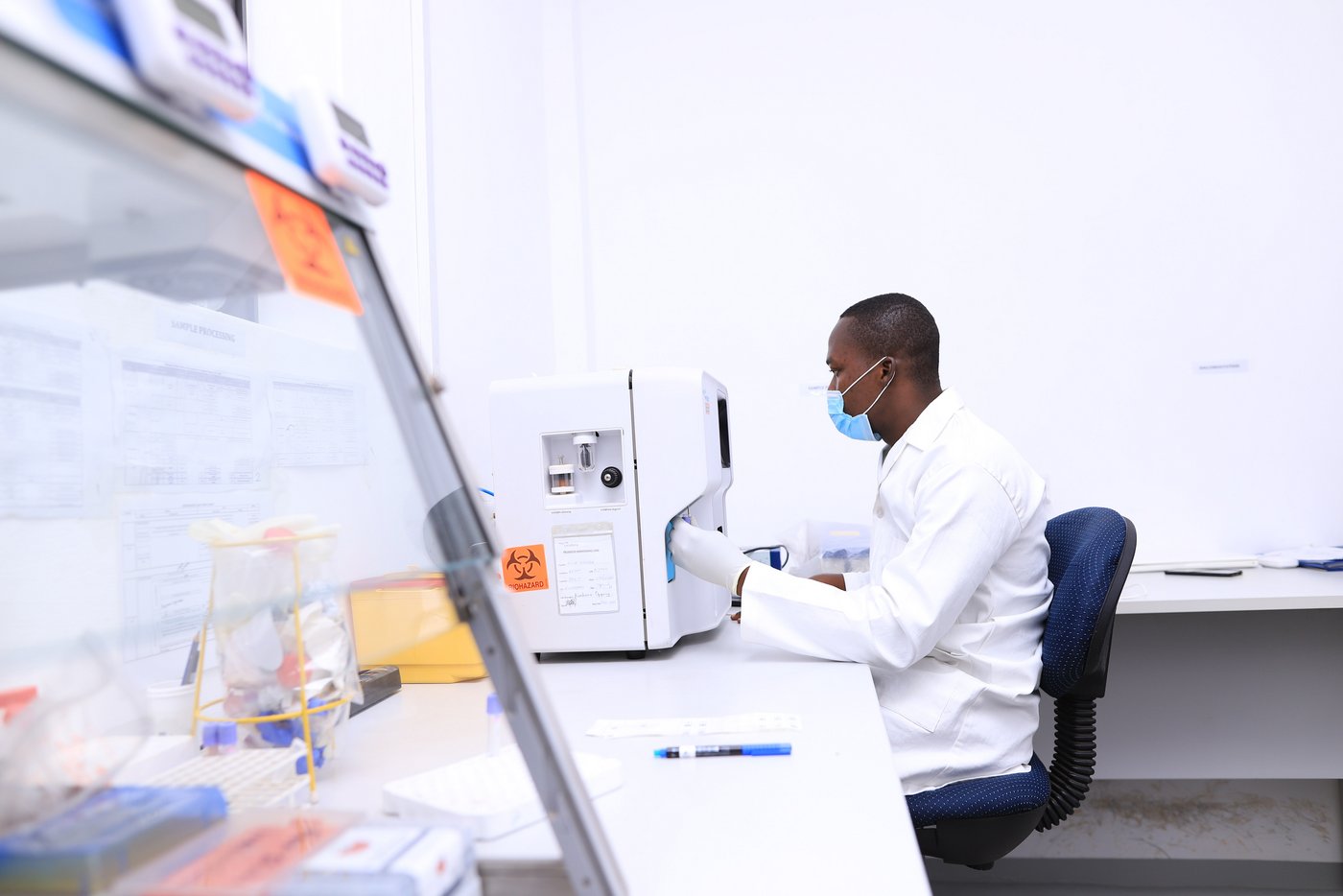Zero maternal mortality at Ghanaian cooperation hospital of BNITM
The Presbyterian Hospital in Agogo, Ghana, recorded no deaths among women during or after childbirth last year. This is a great medical success after 499 fatalities in 2020. The hospital management attributes the dramatic decline also to the intensive collaboration with the scientific community: with the Kumasi Centre for Collaborative Research in Tropical Medicine (KCCR) and its co-operation partner, the Bernhard Nocht Institute for Tropical Medicine (BNITM).

If there are complications during pregnancy or at birth, a race against time begins. This applies to both the Global North and the Global South. No maternal mortality is therefore an outstanding achievement for any hospital.
Last year, the Presbyterian Hospital in Agogo, Ghana, achieved exactly this: of the 2,126 women who decided to have their baby here, there was not a single death.
The hospital management attributes this success to the intensified cooperation with other healthcare facilities and stakeholders in the region in recent years, but above all to the increased transfer of scientific findings into practice. In particular, the hospital cooperates closely with the Infectious Disease Epidemiology research group at the Bernhard Nocht Institute for Tropical Medicine (BNITM) and the Kumasi Centre for Collaborative Research in Tropical Medicine (KCCR). In a festive ceremony, the hospital management presented the KCCR with a certificate of honour in recognition of their joint achievement.
The BNITM is a co-operation partner of the KCCR. The working group is jointly led by Prof. Dr Jürgen May, who is also Chairman of the BNITM Management Board, and Dr Oumou Maïga-Ascofaré (KCCR):

"One year of zero maternal mortality - this success has many mothers and fathers," says Maïga-Ascofaré: "The many research assistants who regularly travel to ten communities around Agogo to advise pregnant women. The midwives who examine the expectant mothers every month, before AND after the birth. The colleagues in the laboratories who immediately report any bacterial infections. The researchers who have been conducting the Malaria Birth Cohort Study since 2019, and many more."
Over the past four years, the cooperation partners have achieved, among other things, that more pregnant women in the Asante Akim North District attend preventive and follow-up examinations, have their iron levels monitored, are tested for malaria and consider a hospital delivery rather than a home birth if there are risks. Midwives and traditional birth attendants have been trained to better recognise when it is safer to give birth in hospital. The Presbyterian Hospital also cooperates with smaller health facilities in the district and advises them on how to recognise critical situations at an early stage so that they can refer pregnant women in good time. It ensures that sufficient blood transfusions are available.

More than 1,200 women have so far taken part in the Malaria Birth Cohort Study to investigate immunity in newborns and infants. Ten communities in the district were included in the study. The pregnant women were visited weekly at home to care about their health. In addition, the midwife came once a month. At each hospital visit, they were offered free malaria tests, urinalyses and tests to determine their iron levels. Free transport was available around the clock to the hospital for the delivery. There was financial support for the hospital costs.
The doctors at the Presbyterian Hospital have access to the clinical biology research laboratory of the Infectious Disease Epidemiology research group established next to the hospital. Microbiological tests are carried out there for the entire hospital, for example for bacterial infections. This is possible through the AMR research project.
The Malaria Birth Cohort Study is funded by the German Centre for Infection Research (DZIF). In addition to Presbyterian Hospital, BNITM and KCCR, the School of Medical Sciences, Kwame Nkrumah University of Science & Technology (SMS/KNUST) and Ruprecht Karls Uniersity Heidelberg were also involved.

The AMR project is funded by the Global Health Protection Program (GHPP) of the German Federal Ministry of Health (BMG).
![[Translate to English:] Gruppenfoto aller an den Studien Beteiligter [Translate to English:] Gruppenfoto aller an den Studien Beteiligter](/fileadmin/_processed_/3/6/csm_zero_maternal_death_agogo_4968_48d1d01e80.jpg)
Background
Agogo Presbyterian Hospital is the largest regional hospital in the Asante Akyem North District. It works closely with the Kwame Nkrumah University of Science and Technology (KNUST), which makes it a pioneer and trendsetter for healthcare facilities in the area.
Bernhard Nocht Institute for Tropical Medicine (BNITM) is Germany's largest institution for research, care and teaching in the field of tropical and emerging infectious diseases. The BNITM has always focussed its research on the aspect of Global Health / One Health and on the aspect of translation - the transfer of basic research into application.
Together with the Ghanaian Ministry of Health and the University of Kumasi, the BNITM operates the Kumasi Centre for Collaborative Research (KCCR), a modern research and training centre that is also open to external scientists. Several working groups are jointly led by researchers from the KCCR and the BNITM.
Contact person
Prof. Dr Jürgen May
Head of Dpt. Infectious Diseases Epidemiology
Phone : +49 40 285380-402
Email : may@bnitm.de
Dr Oumou Maïga-Ascofaré
Co-Investigator
Phone : +233 32 206 0351
Email : maiga@bnitm.de






